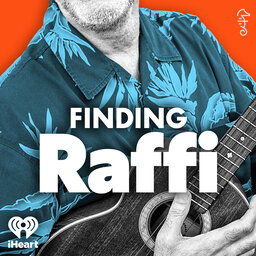I Wonder If I’m Growing
Meet the Camerons, a family that dedicated itself to making sure their daughter was always seen and heard, and who planted the seeds for Raffi’s future work.
Learn more about your ad-choices at https://www.iheartpodcastnetwork.com
 Finding Raffi
Finding Raffi


